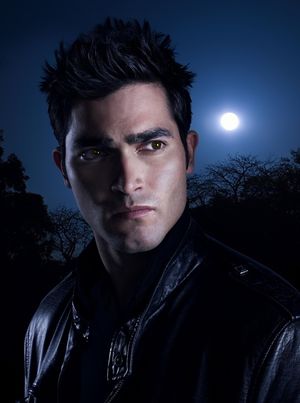| Robert Langley | ||||||||||||||||||||||||||||||||||||

| ||||||||||||||||||||||||||||||||||||
| Robert Langley | ||||||||||||||||||||||||||||||||||||
| ||||||||||||||||||||||||||||||||||||
Langley maintains calm and emotional control even in high-pressure or ethically complex situations, operating with structured self-regulation and consistency. He recovers and adapts in the face of adversity without losing purpose and is trusted to act with competence and integrity. Though skilled in resolving conflict through tact and empathy, he struggles to express personal emotions, often maintaining a stoic or distant demeanor. Once he commits to a course of action, he rarely deviates, even when adaptability would be beneficial. He tends to shoulder excessive responsibility, leading to mental and emotional strain, and his exposure to institutional corruption has made him deeply mistrustful of authority.
Special Abilities
- Null physiology
- Immune to all direct magical, psionic, and supernatural effects
- Supernatural concealment
- Appears as a void to empaths, telepaths, and magical detection
- Heightened mental discipline
- Natural resistance to psychological manipulation and fear
- Tactical intuition
- Instinctive ability to assess threats and develop effective strategies under pressure
- Emotional composure
- Innate ability to remain calm and focused in high-stress or chaotic situations
Special Skills
- Strategic command
- Formal military training in operational planning, battlefield coordination, and chain-of-command leadership
- Personnel management
- Skilled in evaluating, organizing, and mentoring both enlisted and officer personnel
- Naval logistics
- Expertise in resource allocation, supply chain management, and mission-critical planning from Naval Academy coursework
- Demolitions and EOD
- Certified in handling and disarming explosives, with field experience in demolition planning and execution
- Conflict resolution
- Trained in negotiation and diplomatic alternatives, often employed in high-tension environments to avoid unnecessary combat
- Advanced firearms proficiency
- Mastery of standard and tactical sidearms, including the SIG P226-9-NAVY, his preferred weapon
- Intelligence analysis
- Experienced in interpreting classified data, threat assessments, and situational forecasting
- Survival and evasion
- Completed advanced field training in survival tactics and evasion in hostile environments
- Public speaking and ethics instruction
- Served as a guest lecturer on ethical decision-making and leadership under pressure at officer training programs
- Multilingual communication
- Conversational fluency in Spanish and moderate proficiency in Arabic, developed during deployments and joint ops
Specialized Gear
- SIG P226-9-NAVY
- Standard-issue Navy sidearm, renowned for reliability and favored by special operations personnel. Langley maintains it to exacting standards.
- EMP-hardened Tactical Comms Unit
- Secure communication device built to resist EMPs and signal disruption, ensuring operational connectivity under hostile conditions.
- Athrometer
- Compact detection device that senses fluctuations in psionic or supernatural energy fields. Used to monitor anomalous activity in Langley’s vicinity.
- Steel Cipher Ring
- Manual, mechanical tool for encoding and decoding mission-critical data. Preferred in environments where digital tools are compromised or untrustworthy.
Background
Robert Langley was born in the quiet town of Maple Hollow, Alabama—a conservative farming community where tradition and faith carried weight. He was the eldest of three children born to Harold Langley, a stoic Vietnam-era Army veteran turned auto mechanic, and Miriam Langley, a high school civics teacher known locally for her fiery sermons on ethics and democracy.
From an early age, Robert took on the role of caretaker, particularly after his youngest sibling, Rachel Langley, was diagnosed with systemic lupus at the age of six. His middle brother, Caleb Langley, rebellious and impulsive, often clashed with their father, leaving Robert to play mediator and protector. The responsibility matured him quickly, fostering the level-headedness that would come to define his character.
The family’s devout Methodist background emphasized morality and structure, but Robert often found himself internally at odds with its more inflexible doctrines. His mother, more philosophical than dogmatic, encouraged open dialogue at home, especially about history and civic duty. That dynamic planted the seeds of a moral code grounded in empathy, not just obedience.
Tragedy struck during Robert’s junior year of high school when Miriam was killed by a drunk driver en route from a parent-teacher conference. Harold, emotionally withdrawn, never spoke of it again. In the void left by his mother’s death, Robert turned inward—adopting a calm, self-reliant demeanor that never fully softened.
He attended the U.S. Naval Academy at Annapolis, excelling in ethics, logistics, and command strategy. Though never the loudest or most charismatic cadet, he earned quiet respect for his measured judgment and composure under pressure. His refusal to follow an early-career order that would have jeopardized civilian lives nearly cost him his commission, but his calculated disobedience caught the attention of senior officers who understood the value of a principled man in an unprincipled world.
Langley married fellow officer Lt. Sara Whitlock, an ambitious surface warfare officer, but their shared sense of duty couldn’t bridge the chasm in their approaches to command. Where she prized loyalty to the chain of command, Langley prioritized ethical discretion. The marriage ended amicably but firmly, leaving behind only deeper solitude.
A turning point came when he was reassigned to serve under Admiral Lance Thomas at the Ad Undas facility in Los Angeles—a secretive command hub where military experimentation on supernatural beings was escalating. It was there, among the classified reports and silent suffering of test subjects, that Langley witnessed the darkest face of strategic ambition. He watched soldiers crack from psionic feedback, civilians disappear in the name of research, and the ethical framework of the military erode from within.
These experiences solidified his resolve: the military’s misuse of supernatural beings is not only a tactical liability—it is a moral abomination. As XO to Thomas, Langley operates with discretion and quiet vigilance, preparing for the day when he can rise to a command of his own and dismantle the system from within.